 Rabbi Mark Levin has been a rabbi for nearly 37 years. During that time he has never performed an interfaith wedding ceremony. That’s about to change. The pulpit rabbi at Congregation Beth Torah informed his congregation earlier this year that he has revised his policy. He will now officiate at marriages, exclusively for families who are members of Beth Torah, for couples who will commit to supporting the Jewish community throughout their lives and who have no other religious affiliation or commitment.
Rabbi Mark Levin has been a rabbi for nearly 37 years. During that time he has never performed an interfaith wedding ceremony. That’s about to change. The pulpit rabbi at Congregation Beth Torah informed his congregation earlier this year that he has revised his policy. He will now officiate at marriages, exclusively for families who are members of Beth Torah, for couples who will commit to supporting the Jewish community throughout their lives and who have no other religious affiliation or commitment.
(Other rabbis in the area also perform interfaith marriages. See related storiy on page 7 for more.)
This is not a change that happened overnight for the Reform rabbi.
“I have been absolutely consistent with this decision over the years, even with some deeply meaningful circumstances,” he said in a recent interview.
“There have been plenty of people I have wanted to officiate for and I couldn’t,” he continued.
He explained his decision in the congregation’s February newsletter:
“The interfaith marriage rate among Jews in greater Kansas City is, by my estimate, well over 50 percent. Fewer and fewer intrafaith marriages take place in the city annually, particularly among young people. Whereas I continue to agree with my religiously principled previous position, another set of religious facts has emerged, i.e.: Many of our young people are marrying without regard to the Jewish status of their spouse, but not without regard for Judaism. They are raising Jewish children, and receiving a commitment from their spouse prior to marriage that the family will support Judaism and the Jewish community.”
Over the years he has noticed that he was officiating at fewer and fewer weddings, which factored into this change of heart. Another thing that influenced him was that his friend and colleague Rabbi Lawrence Hoffman, who held similar beliefs, changed his position on the matter.
According to Rabbi Levin, Rabbi Hoffman thought Rabbi Levin’s stand against marrying interfaith couples was wrong.
“Larry also has the same approach to religious analysis as I do, which is an anthropological approach to the understanding of religion,” he explained.
“His feeling was there have been plenty of changes in Jewish life over the centuries. He believes this is another change involving very sincere people who intend to build up the Jewish community, who believe they are marrying within the Jewish community. And, indeed, in this congregation those folks have been included in the Jewish community absolutely consistently,” Rabbi Levin said.
Now, Rabbi Levin said he will officiate at the weddings of people who believe they are marrying into the Jewish community.
“That is to say people are coming into the Jewish community but they won’t make a commitment to be a Jew,” he explained.
He gave this example of a couple he met with recently. The bride-to-be grew up at and was very active at Beth Torah. Her fiancé is not Jewish.
“He said to me, ‘I know that our values are the values with which (my fiancé) grew up and I am joining, but I am not Jewish,’ ” said Rabbi Levin.
In the past the rabbi would not have officiated at “this very significant life-cycle event for people who were going to spend their lives in the Jewish community.” After they were married, however, he would welcome them as members of the congregation with open arms.
In the future, Rabbi Levin will “no longer demand that both partners assert their Judaism, if both can affirm their absolute commitment to a Jewish life for their family and support for the Jewish community that gives context to the marriage.”
When he has conversations with couples regarding this issue, Rabbi Levin isn’t worried that the non-Jewish half of the couple will tell him what he wants to hear just so the rabbi will officiate and to make the Jewish half of the couple happy.
“By and large people absolutely tell the truth because what they are saying is here’s what my life is about. But, believe me, we will have a very serious discussion,” he said.
Interfaith couples who hope to be married at Beth Torah by Rabbi Levin will read — and sign — the statement that was published in the congregation’s newsletter.
“I will make sure that they understand what the implications are, that they see themselves as holding Jewish values that uphold the life of the Jewish community and that their intention is to participate, as though they were Jews, in the life of the Jewish community,” he said.
This change of stance does not mean Rabbi Levin will marry any interfaith couple. For instance Rabbi Levin does not plan on co-officiating at a wedding with a clergyperson of another faith.
However, the Reform rabbi is still considering what he will do if the couple’s stance on religion is not quite black and white.
“For those people who say, ‘Look, I want to maintain my religious affiliation but if you’re wondering if I’m going to be supportive of life at Beth Torah, you betcha. I’m going to be there with my children and with my spouse ... I’m going to be fully supportive. This is going to be their culture, this is going to be their religion, but theologically I’m going to remain a Christian…’ I’m just not clear yet how that’s going to come out.”
Rabbi Levin noted that Beth Torah has families like that now, who attend services and are active participants.
“I am much more concerned with the people who say, ‘I don’t get this Judaism thing. That’s her thing. Yes I am going to continue to go to my religious tradition. I don’t see myself as a member of the Jewish community but I’m perfectly happy to have a Jewish family.’ ”
He can’t see himself officiating at weddings for those couples.
“But I think that there may potentially be some people who object and ask, ‘Where did you draw that line? It’s not particularly clear to me.’ ”
The rabbi added, “It’s a line that’s clear to me, personally, and I’m hoping that it will be clear to other people as well. And frankly, that’s a reason not to have changed … I am convinced I am not being arbitrary. I’ve taken great pains to write it out completely. The differences in some cases may be subtle and I can understand the fact that some people may not make the distinctions that I believe are very real.”
Several local rabbis also perform interfaith ceremonies
 Interfaith wedding ceremonies are conducted by several rabbis in the area. Rabbis Arthur Nemitoff and Jacques Cukierkorn have each been performing them for 19 years.
Interfaith wedding ceremonies are conducted by several rabbis in the area. Rabbis Arthur Nemitoff and Jacques Cukierkorn have each been performing them for 19 years.
“I go out of my way to accommodate couples and enable them to make Jewish choices for their new family,” said Rabbi Cukierkorn of Temple Israel, who has performed such ceremonies since he was ordained.
“I believe I have succeeded overall since many of my temple members are couples I married and they have chosen to live Jewish lives,” Rabbi Cukierkorn said.
Rabbi Arthur Nemitoff, senior rabbi of The Temple, Congregation B’nai Jehudah, has been a rabbi for 32 years. His choice to start officiating at interfaith weddings about 19 years ago was not originally based solely on his own beliefs. At that time he was moving to Columbus, Ohio, to serve a congregation that had a tradition of marrying interfaith couples.
“In fact all the Reform rabbis in Columbus did interfaith marriage ceremonies,” Rabbi Nemitoff said.
Besides the fact that he felt it was unfair to members of his congregation for him to not follow this tradition, he said he realized that even though there was no solid data showing that performing interfaith marriage ceremonies brought more Jews into the fold, he felt it was the case anecdotally.
“The more we said no, the harder it was on families. The more we can say yes, the more welcoming we can be,” he said.
Over time, Rabbi Nemitoff has created an interfaith wedding ceremony he is comfortable using “that is like a Jewish wedding ceremony with subtle differences.”
He said there are three things that are a part of a Jewish ceremony that are not a part of the interfaith ceremony he conducts. First, he will not use the phrase, “with this ring be consecrated unto me as my wife or my husband in accordance of the laws of Moses and the people of Israel.”
“That phrase, the laws of Moses and the people of Israel, is a unique statement. It says everything I hold as a Jew and all my Jewish background, I hold as a surety pledge for you. If the couple is not both Jewish, you can’t make that statement,” Rabbi Nemitoff said.
Along those lines, he does not offer a ketubah to an interfaith couple.
“A ketubah by definition is a Jewish document. We use something else that is similar,” he said.
Finally, he doesn’t do all the blessings over the wine.
“The first blessing really says, ‘Thank you God for telling us who we can and can’t marry,’ meaning we can’t marry people who aren’t Jewish. It’s inappropriate to do that in an interfaith marriage ceremony, so I just eliminate that blessing.”
Over the years, Rabbi Nemitoff has come to believe it’s important to perform interfaith marriage ceremonies and show that these couples are being embraced by the Jewish community. He also lets the couple decide whether it is appropriate to be married in a Jewish ceremony.
“No one likes to be told yes or no. No one likes to be given permission. I’ve turned it around and I describe who I am and what my values are. You need to decide what your family life is going to be like and if it matches who I am. If it does, then I’m the right person to help you. If it doesn’t, then somebody else is the right person to help you,” he explained.
None of the Orthodox or Conservative rabbis in town will officiate at an interfaith wedding.
“To be clear,” Orthodox Rabbi Daniel Rockoff of BIAV noted, “if the non-Jewish party converted to Judaism, (then) it would be allowed.”
In the Conservative movement, Rabbi Scott White of Congregation Ohev Sholom pointed out that performing “intermarriages violates the Rabbinical Assembly’s standards of practice, and constitutes grounds for expulsion.”
While Conservative rabbis in Kansas City don’t perform interfaith marriage ceremonies, Rabbi David Glickman pointed out that Congregation Beth Shalom welcomes interfaith families.
“We have a number of interfaith families in our synagogue and religious school. We also welcome members who choose to convert to Judaism in all areas of synagogue life,” Rabbi Glickman said.
 GOODHART WAY — Last Friday, March 22, the Brookside Shopping District renamed Brookside Plaza as Leon Goodhart Way from 63rd Street south to Meyer Blvd. Goodheart, who died June 9 at age 82, was born in Poland, survived the Holocaust and immigrated to Kansas City in 1949. He started working at the Country Club Shoe Store in Brookside with his great uncle, Jake Hyman, and continued working there the rest of his working life. As his obituary stated, “It’s fair to say that Leon was an icon in the Brookside business community and the Greater Kansas City metropolitan area in general. Literally fitting generations of kids in shoes, there were many parents that wouldn’t consider having anyone else touch their children’s feet. He owned other properties in Brookside as well and enjoyed “strolling through” the area, even after he retired.
GOODHART WAY — Last Friday, March 22, the Brookside Shopping District renamed Brookside Plaza as Leon Goodhart Way from 63rd Street south to Meyer Blvd. Goodheart, who died June 9 at age 82, was born in Poland, survived the Holocaust and immigrated to Kansas City in 1949. He started working at the Country Club Shoe Store in Brookside with his great uncle, Jake Hyman, and continued working there the rest of his working life. As his obituary stated, “It’s fair to say that Leon was an icon in the Brookside business community and the Greater Kansas City metropolitan area in general. Literally fitting generations of kids in shoes, there were many parents that wouldn’t consider having anyone else touch their children’s feet. He owned other properties in Brookside as well and enjoyed “strolling through” the area, even after he retired.


 “I am very proud of being a family physician,” said Joel Feder, D.O.
“I am very proud of being a family physician,” said Joel Feder, D.O.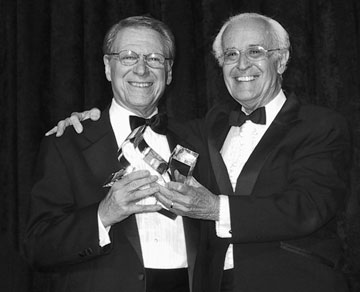 Hyman Brand Hebrew Academy is honored that the family of Rabbi Morris B. Margolies is supporting the school’s desire to dedicate its Program Book for the annual 2013 Civic Service Award Dinner to the memory of the rabbi. The book will be available to all who attend HBHA’s only major fundraising event on Sunday, April 28, at the Overland Park Convention Center.
Hyman Brand Hebrew Academy is honored that the family of Rabbi Morris B. Margolies is supporting the school’s desire to dedicate its Program Book for the annual 2013 Civic Service Award Dinner to the memory of the rabbi. The book will be available to all who attend HBHA’s only major fundraising event on Sunday, April 28, at the Overland Park Convention Center.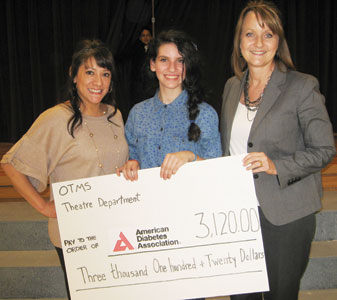
 Rabbi Mark Levin has been a rabbi for nearly 37 years. During that time he has never performed an interfaith wedding ceremony. That’s about to change. The pulpit rabbi at Congregation Beth Torah informed his congregation earlier this year that he has revised his policy. He will now officiate at marriages, exclusively for families who are members of Beth Torah, for couples who will commit to supporting the Jewish community throughout their lives and who have no other religious affiliation or commitment.
Rabbi Mark Levin has been a rabbi for nearly 37 years. During that time he has never performed an interfaith wedding ceremony. That’s about to change. The pulpit rabbi at Congregation Beth Torah informed his congregation earlier this year that he has revised his policy. He will now officiate at marriages, exclusively for families who are members of Beth Torah, for couples who will commit to supporting the Jewish community throughout their lives and who have no other religious affiliation or commitment. Interfaith wedding ceremonies are conducted by several rabbis in the area. Rabbis Arthur Nemitoff and Jacques Cukierkorn have each been performing them for 19 years.
Interfaith wedding ceremonies are conducted by several rabbis in the area. Rabbis Arthur Nemitoff and Jacques Cukierkorn have each been performing them for 19 years.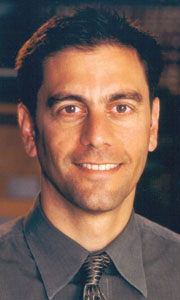 The issue of organ donation is one that is often misunderstood in the Jewish community. The next speaker in the Caviar Family Jewish Scholar in Residence Series at Kehilath Israel Synagogue will be here the weekend of March 22 to help dispel Jewish presuppositions about the halachic validity of organ donation.
The issue of organ donation is one that is often misunderstood in the Jewish community. The next speaker in the Caviar Family Jewish Scholar in Residence Series at Kehilath Israel Synagogue will be here the weekend of March 22 to help dispel Jewish presuppositions about the halachic validity of organ donation. Like many Jewish women, I have been thinking about Passover. The first seder is less than two weeks away and I have barely begun planning. I’m lucky that as the editor of The Kansas City Jewish Chronicle things come across my desk and into my email box that help me prepare for the holiday.
Like many Jewish women, I have been thinking about Passover. The first seder is less than two weeks away and I have barely begun planning. I’m lucky that as the editor of The Kansas City Jewish Chronicle things come across my desk and into my email box that help me prepare for the holiday.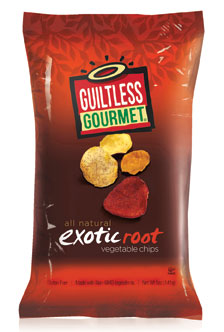 I stopped by the Cosentino’s Price Chopper at 95th and Mission last week and, while I have no idea if it is a new product, I saw individual bags of Glicks Fine Potato Chips in two flavors — original and spicy BBQ, which are easy to pack in lunches during the Passover week.
I stopped by the Cosentino’s Price Chopper at 95th and Mission last week and, while I have no idea if it is a new product, I saw individual bags of Glicks Fine Potato Chips in two flavors — original and spicy BBQ, which are easy to pack in lunches during the Passover week. This year the Manischewitz company has in fact introduced dozens of innovative and new products this Passover season (Streits did not answer a request for similar information.) Many of the new products feature the Manischewitz Health and Wellness Icon. The icon communicates the healthier attributes of the products, such as all-natural and an excellent source of fiber, low sodium, no MSG, sulfite-free, no artificial preservatives or ingredients.
This year the Manischewitz company has in fact introduced dozens of innovative and new products this Passover season (Streits did not answer a request for similar information.) Many of the new products feature the Manischewitz Health and Wellness Icon. The icon communicates the healthier attributes of the products, such as all-natural and an excellent source of fiber, low sodium, no MSG, sulfite-free, no artificial preservatives or ingredients.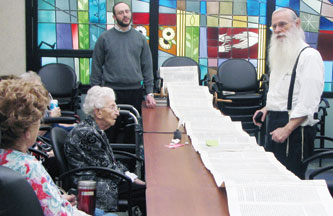 HAVE QUILL, WILL TRAVEL: SOFER RESTORES VILLAGE SHALOM TORAHS — Rabbi Gedaliah Druin, a sofer (scribe) from Sofer On Site based in Miami, recently spent several days at Village Shalom to make repairs to the retirement community’s three Torahs.
HAVE QUILL, WILL TRAVEL: SOFER RESTORES VILLAGE SHALOM TORAHS — Rabbi Gedaliah Druin, a sofer (scribe) from Sofer On Site based in Miami, recently spent several days at Village Shalom to make repairs to the retirement community’s three Torahs. The Jewish community and Israel supporters here in Kansas City are wild about Harry, President Harry S. Truman that is.
The Jewish community and Israel supporters here in Kansas City are wild about Harry, President Harry S. Truman that is. Truman’s support of Israel can be attributed, at least in part, to lobbying efforts made by two Kansas Citians — Eddie Jacobson and A.J. Granoff (Loeb Granoff’s father). The senior Granoff was close friends with Jacobson, a modest haberdasher who was Truman’s former business partner and World War I buddy. Both Jacobson and A.J. Granoff, “played a pivotal role in making the miracle of Israel’s rebirth happen,” Loeb Granoff explained.
Truman’s support of Israel can be attributed, at least in part, to lobbying efforts made by two Kansas Citians — Eddie Jacobson and A.J. Granoff (Loeb Granoff’s father). The senior Granoff was close friends with Jacobson, a modest haberdasher who was Truman’s former business partner and World War I buddy. Both Jacobson and A.J. Granoff, “played a pivotal role in making the miracle of Israel’s rebirth happen,” Loeb Granoff explained.